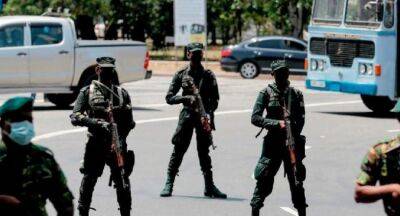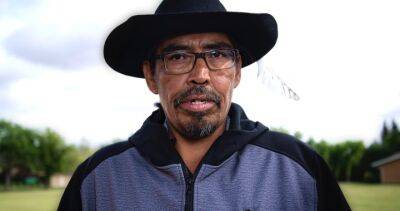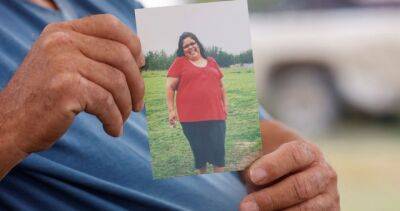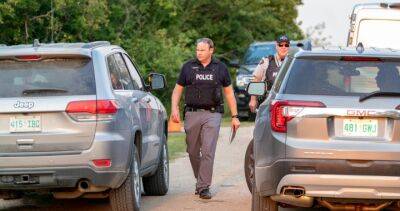Saskatchewan stabbing suspect was not considered a risk by parole board, report shows
Saskatchewan, a parole official ruled that the key suspect did not pose a danger and that releasing him would help him become a “law-abiding citizen.”A Parole Board of Canada decision dated Feb.
1 found that Myles Sanderson would “not present an undue risk,” and freeing him would “contribute to the protection of society” by facilitating his reintegration.Sanderson became the subject of a massive police manhunt after 11 people were killed and 19 injured on the James Smith Cree Nation and in Weldon, Sask.Among the dead was Sanderson’s brother Damien, who was also wanted.
Saskatchewan stabbings: Mother of two, first responder among those killed Police have said little about Sanderson, except that he had a significant criminal record, was last seen in Regina and was wanted on an arrest warrant for three counts of first-degree murder following Sunday’s stabbings.But his parole records recount almost two decades of crime, as well as drug and alcohol abuse, and associations with gang members, pimps and drug dealers.Although just 31, he had 59 criminal convictions since turning 18.His most recent convictions were for assault, assault with a weapon, assaulting a police officer, uttering threats, mischief and robbery.According to parole records obtained by Global News, in July 2017, Sanderson showed up at his ex-girlfriend’s house and “acted in a threatening manner, made comments about a gang, and damaged property.”While the children hid in a bathtub, he punched a hole in the bathroom door before going outside and throwing a cement block through the side window of a car.
He had fled before the police arrived.Days later, during an argument with an employee at a “First Nations band store,” Sanderson “tried to fight the victim, and.
Read more on globalnews.ca



















































